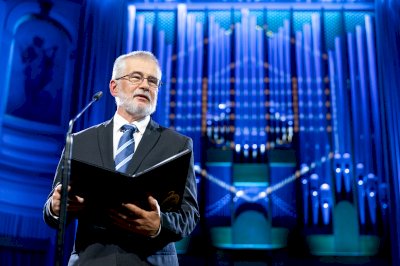What is really important to teach future family doctors?
Friday 6 October, 9:35
-
Prof. Dr. Igor Švab
University of Ljubljana, Medical Faculty, Department of family medicine
Igor Švab is a professor of family medicine at Faculty of Medicine, University of Ljubljana. He was first head of the Department of Family Medicine. He is currently dean of the medical faculty. He held many international positions in the field of family medicine. He was EGPRN and EURACT council member and president of WONCA Europe from 2004 until 2010. He is editor-in-chief of the SCI-indexed Slovenian Journal of Public Health and member of Slovenian and Croatian Academies of Medical Sciences, of European Academy of sciences and arts, honorary fellow of the RCGP (UK) and a WONCA World fellow.
 We are living in a constantly changing world. The changes are reflected in all areas of our lives, medicine being just one of them. Most of the things we require our learners to know will not be true in thirty years. Most of the skills we require from our students and residents will be replaced by other skills, some of them we are not even aware of. As teachers of family medicine it is essential that we are able to predict the future by recognising main trends in medicine and society. If we can do that, we can decide what is important to teach future doctors. To help us in this difficult task, it is important that we are aware of the core elements that define our discipline. Ethics and professionalism are increasingly being recognised as the core competencies of the future, more important than technical skills and knowledge. They are also notoriously difficult to teach by traditional methods. Because of their importance, our professional organizations must also be able to defend them in dialogue with the society that is challenging them. This is how we will be able to surf the waves, generated by the winds of constant change.
We are living in a constantly changing world. The changes are reflected in all areas of our lives, medicine being just one of them. Most of the things we require our learners to know will not be true in thirty years. Most of the skills we require from our students and residents will be replaced by other skills, some of them we are not even aware of. As teachers of family medicine it is essential that we are able to predict the future by recognising main trends in medicine and society. If we can do that, we can decide what is important to teach future doctors. To help us in this difficult task, it is important that we are aware of the core elements that define our discipline. Ethics and professionalism are increasingly being recognised as the core competencies of the future, more important than technical skills and knowledge. They are also notoriously difficult to teach by traditional methods. Because of their importance, our professional organizations must also be able to defend them in dialogue with the society that is challenging them. This is how we will be able to surf the waves, generated by the winds of constant change.
